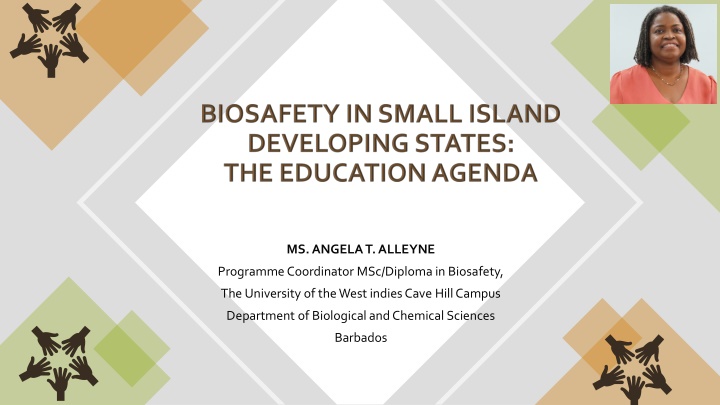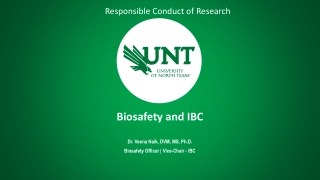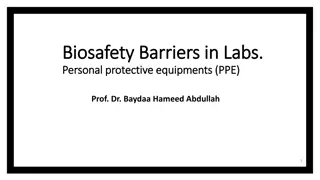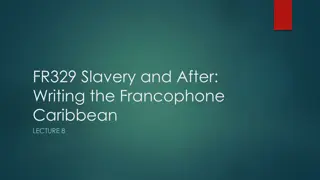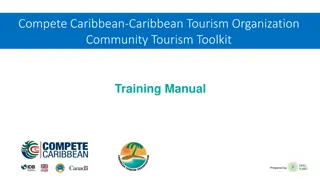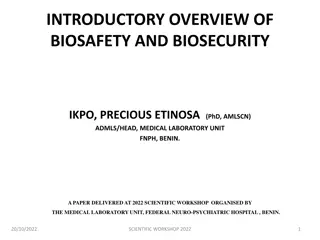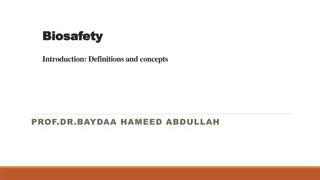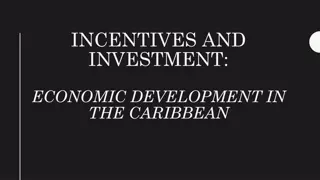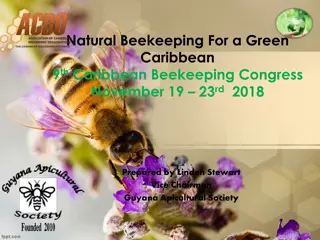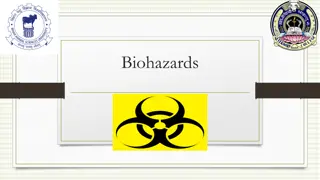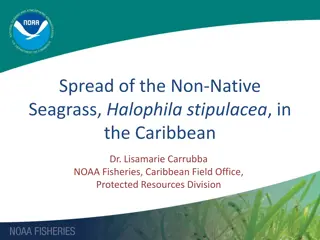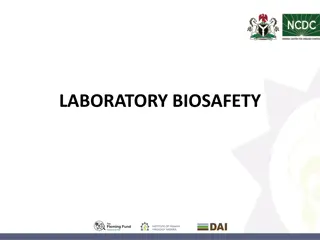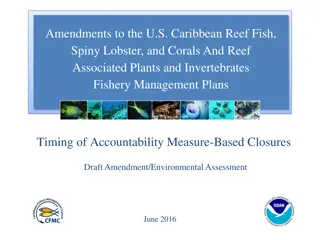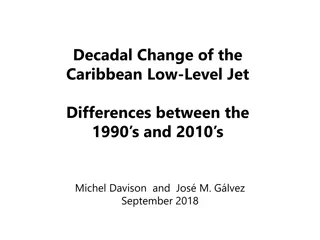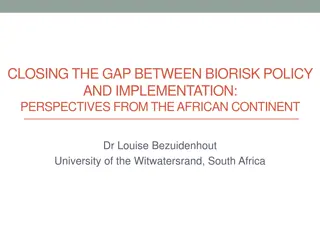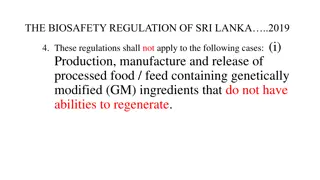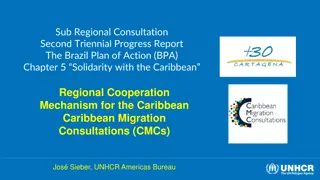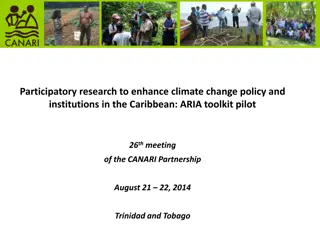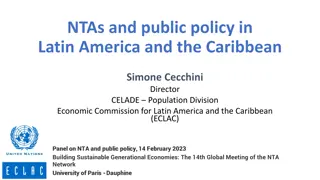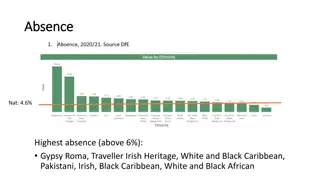Biosafety Education and Training in the Caribbean
MSc/Diploma in Biosafety program at the University of the West Indies, focusing on theoretical, legal, and practical aspects of biosafety. Learn about the core concepts, goals, and impact of biotechnology on biodiversity in the Caribbean region. Discover the expanding course areas and sectors where biosafety experts are making a difference.
Download Presentation

Please find below an Image/Link to download the presentation.
The content on the website is provided AS IS for your information and personal use only. It may not be sold, licensed, or shared on other websites without obtaining consent from the author.If you encounter any issues during the download, it is possible that the publisher has removed the file from their server.
You are allowed to download the files provided on this website for personal or commercial use, subject to the condition that they are used lawfully. All files are the property of their respective owners.
The content on the website is provided AS IS for your information and personal use only. It may not be sold, licensed, or shared on other websites without obtaining consent from the author.
E N D
Presentation Transcript
MS. ANGELA T. ALLEYNE Programme Coordinator MSc/Diploma in Biosafety, The University of the West indies Cave Hill Campus Department of Biological and Chemical Sciences Barbados
MSC/Diploma in Biosafety University of the West indies 15 -month full time course of study in theoretical, legal and practical aspects of Biosafety. Students from as far as Belize in the north to Suriname in the south and the islands in between. All courses are offered in an online format, except Laboratory methods in Biosafety. This is a workshop type course scheduled dates are in June or July in a workshop-based format covering one week of oneweek online tuition. practical and Biosafety postgraduate education at the tertiary level since 2014. 1
Past and Current Enrollments Number of students Barbadian students will continue to be the main students Students have a first degree in Biological Sciences, viz. Biochemistry, Biology, Microbiology and Environmental Sciences We are aiming to encourage even more professionals with several years of working experience to apply 37% = students from Barbados 12 10 8 6 4 2 0 2 2014 2015 2016 2017 2018 2019 2020 2021
MSc Diploma Biosafety/Our Goal Create trained Caribbean professionals in Biosafety Display safe Biotechnology practices Provide students with Biotechnology skills on risk analysis Meet regional and international agreements on Biosafety 3
Core concepts Cartagena protocol We provide information on and examine the Cartagena Protocol and other MLAs in considering Biosafety and the environment in the Caribbean island states Action agenda Build widespread awareness of the importance of safeguarding biodiversity using policy instruments, legislation, personal commitment and NGO activities Biodiversity Educate and analyze the impact of biotechnology on plant biodiversity Public education Conduct surveys through research projects to determine the level of awareness of Biosafety and Biotechnology in the region. 4
Health sector Industry Laboratories Education/teaching Where are students now? As the program widens its scope 3 new course areas are being designed. We commit to develop the course areas by 2030 more sectors with biosafety experts New courses!! Food Safety Clinal Biosafety Climate change and biosafety 5
The Cartagena Protocol on Biosafety and The Action Agenda for Nature and People We commit to introduce the action agenda as a discussion in the core course of the program Biosafety, Biotechnology and the environment The MSc. in Biosafety program continues to: Increase capacity in all Caribbean countries to manage potential adverse impacts of biotechnology on biodiversity and human health Inform policy on Biosafety throughout the Caribbean region Academic institutions as education professionals should be key partners in support of the Action Agenda 6
